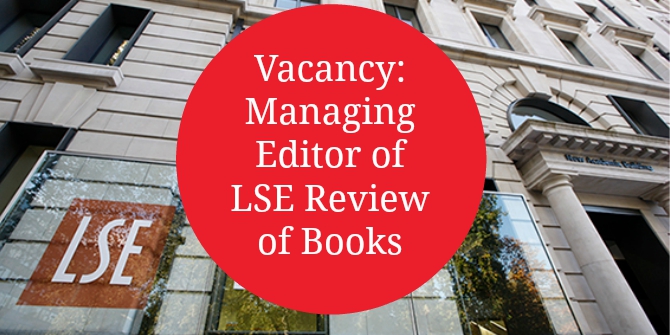 Funders of UK research have sought to foster a research culture in which public engagement is embedded at all levels. Kevin Burchell, Chloe Sheppard and Jenni Chambers report on research examining the extent of participation in public engagement by UK researchers, how it varies, and why. Large majorities of researchers have participated in public engagement and are broadly positive about it, while institutions are also shown to be supportive. However, a lack of time, opportunities, funding, and reward are cited as constraints. Meanwhile, public engagement appears more firmly embedded in the arts, humanities and social sciences than it is among STEM researchers. The provision of effective, accessible training is found to be an important precursor to participation in public engagement.
Funders of UK research have sought to foster a research culture in which public engagement is embedded at all levels. Kevin Burchell, Chloe Sheppard and Jenni Chambers report on research examining the extent of participation in public engagement by UK researchers, how it varies, and why. Large majorities of researchers have participated in public engagement and are broadly positive about it, while institutions are also shown to be supportive. However, a lack of time, opportunities, funding, and reward are cited as constraints. Meanwhile, public engagement appears more firmly embedded in the arts, humanities and social sciences than it is among STEM researchers. The provision of effective, accessible training is found to be an important precursor to participation in public engagement.
The funders of UK research seek a research culture in which public engagement by researchers – a wide range of forms of interaction between researchers and publics – is embedded in strategy and practice at all levels. This objective is based on the assumption that mutually supportive relationships between research and society are important for both, and such relations are best ensured through high levels and varied forms of interaction between the two.
The objective of this post is to provide a snapshot of the current UK landscape of public engagement by researchers, and to identify challenges in ways that might inform the development of future strategies to better support public engagement by researchers. In particular, we examine the extent of participation in public engagement by UK researchers, the ways in which participation varies across different groups of researchers, and some of the factors that appear to support or not support participation. In our research paper, we report on a quantitative survey conducted in 2015. The survey yielded 2,454 responses, a healthy 22% response rate. Responses were weighted to achieve a representative sample.
 © 2018 Wellcome Collection
© 2018 Wellcome Collection
The research suggests that the embedding of public engagement with research in UK institutional research cultures might be best understood as a “work in progress”. We use this term to encapsulate the mixed picture that is presented by the research results. More specifically, the results indicate both that public engagement is now part of the landscape of higher education and research institutions, and that challenges remain. It is important to note that the public engagement agenda has also been criticised in some quarters.
The extent to which public engagement is now part of the higher education landscape is illustrated by the fact that 94% of UK researchers appear to have participated in public engagement and communication activities in the year prior to the survey. For around a third, this is at relatively low levels (on between one and ten occasions), and then the numbers gradually decline as extents of participation increase up to 40+ occasions. This pattern conforms to a classic “pyramid of participation” in which numbers decline as extents of participation increase.
In addition: most researchers (89%) have broadly positive attitudes towards public engagement; most researchers (72%) sense that public engagement is part of the landscape to a greater extent than it was ten years ago; 54% of researchers said that they think the quality of public engagement has increased over the same period; 64% of researchers said that institutional encouragement to undertake public engagement had increased over the decade; and 62% of researchers indicated that their departmental peers are supportive of those who participate in public engagement. With respect to a question about future ambitions, 54% of researchers responded that they wished to spend more time on public engagement in the future.
 © 2018 Brain Games, Cardiff University
© 2018 Brain Games, Cardiff University
At the same time, the research also identifies a range of challenges. For instance, as in previous studies, the study suggests that researchers continue to cite a lack of time (61%), opportunities (26%), funding (26%), and reward (18%) as constraints on public engagement. In addition, 79% of researchers indicated that they have not undertaken any formal public engagement training in the past five years (with 47% saying they had not even been offered any training). Given that most institutions – most likely above 90% – do offer training, this finding suggests that there may be something of a lacuna between researchers and institutional structures to support public engagement in many institutions. This is an important finding, given our analysis also indicates that, among other things, participation in training is an important precursor to participation in public engagement.
Notably, the research also suggests that public engagement is more firmly embedded in the arts, humanities and social science (AHSS) disciplines than it is among STEM researchers. For instance, to a statistically significant extent, AHSS researchers undertake more public engagement, have more confidence doing public engagement, and feel better equipped to do public engagement. The results also shows that attitudes that might be associated with the public understanding of science agenda – that the purpose of public engagement is to maintain public support for research, for example – are much more prevalent among STEM researchers. Meanwhile, perspectives that might be more readily associated with two-way public engagement approaches –that the purpose of public engagement is to contribute to public debate, for instance – were much more common among AHSS researchers.
 © 2018 National Coordinating Centre for Public Engagement
© 2018 National Coordinating Centre for Public Engagement
In conclusion, this research straightforwardly suggests a number of prosaic tactical priorities for the funders of UK research, and higher education institutions and research institutes. For instance, the provision of effective public engagement training in ways that are easily accessible, and paying specific attention to the STEM disciplines are obvious responses. However, the finding that participation in public engagement continues to be significantly constrained by a lack of time, lack of recognition, and lack of reward asks more fundamental questions of all stakeholders. How much public engagement is considered enough? To what extent should and could the rewards for public engagement be increased? Within this context, what would be an appropriate balance of funding and rewards between research, teaching, and public engagement (as well as other matters)? And what would the implications of such a change be for research and teaching (and other activities)?
This blog post draws on the “Factors affecting public engagement by researchers” project, funded by a Consortium of fifteen UK public funders of research in 2015. The research was specified and managed by a Steering Group drawn from the Consortium, led by a project team at Wellcome Trust, and was carried out by social research agency, TNS-BMRB, supported by Dr Kevin Burchell. For further information, see:
- Burchell, K., Sheppard, C. and Chambers, J. (2017) “A ‘work in progress’?: UK researchers and participation in public engagement”, Research for All (DOI: 10.18546/RFA.01.1.16).
- Burchell, K. (2015) “Factors affecting public engagement by researchers: literature review” (PDF – 233KB), Policy Studies Institute, London.
- TNS-BMRB and Burchell, K. (2015) “Factors affecting public engagement by researchers. A study on behalf of a Consortium of UK public research funders” (PDF – 1.5MB), TNS-BMRB. London.
Note: This article represents the views of the authors, and not the position of the LSE Impact Blog, nor of the London School of Economics. Please review our comments policy if you have any concerns on posting a comment below.
About the authors
 Kevin Burchell is also the author of Public Culture as Professional Science: the final report of the ScoPE project (2009), A helping hand or a servant discipline? – Interpreting non-academic perspectives on the roles of social science in participatory policy-making (2009) and The roles of social science in public dialogue on science and technology (2008).
Kevin Burchell is also the author of Public Culture as Professional Science: the final report of the ScoPE project (2009), A helping hand or a servant discipline? – Interpreting non-academic perspectives on the roles of social science in participatory policy-making (2009) and The roles of social science in public dialogue on science and technology (2008).
 Chloe Sheppard is Research and Engagement Relationships Manager at the Wellcome Trust. Chloe has responsibility for the Public Engagement department’s long-term relationships with key delivery and partner organisations globally, including universities in the UK. She has worked in public engagement for 15 years including at Research Councils UK and the Royal Society. She has a BSc in Biological Sciences and an MSc in Science Communication.
Chloe Sheppard is Research and Engagement Relationships Manager at the Wellcome Trust. Chloe has responsibility for the Public Engagement department’s long-term relationships with key delivery and partner organisations globally, including universities in the UK. She has worked in public engagement for 15 years including at Research Councils UK and the Royal Society. She has a BSc in Biological Sciences and an MSc in Science Communication.
 Jenni Chambers is Head of Public Engagement at Research Councils UK. Jenni has worked in public engagement policy since 2008, working with the HE sector on a series of programmes to encourage and develop better support for researchers engaging the public.
Jenni Chambers is Head of Public Engagement at Research Councils UK. Jenni has worked in public engagement policy since 2008, working with the HE sector on a series of programmes to encourage and develop better support for researchers engaging the public.
–







